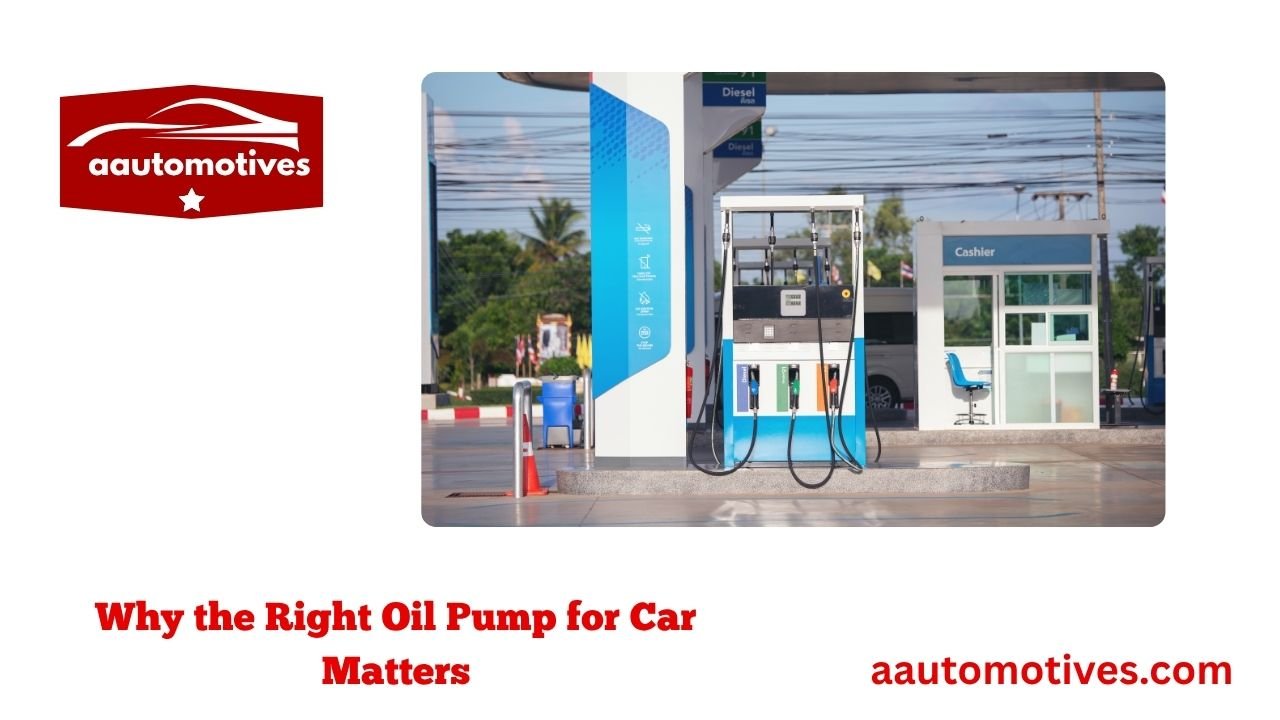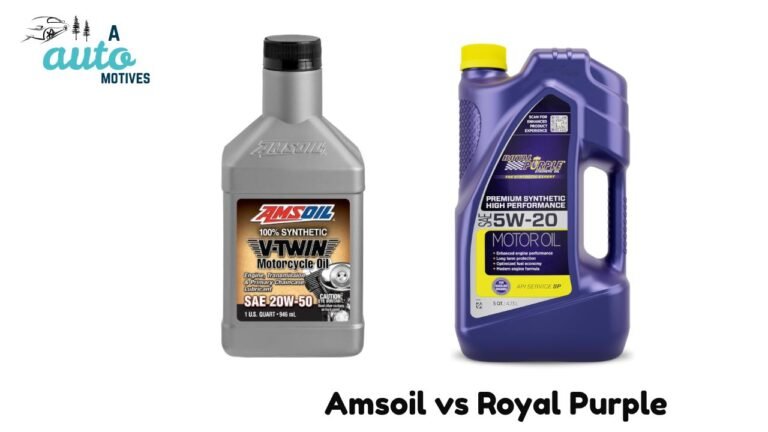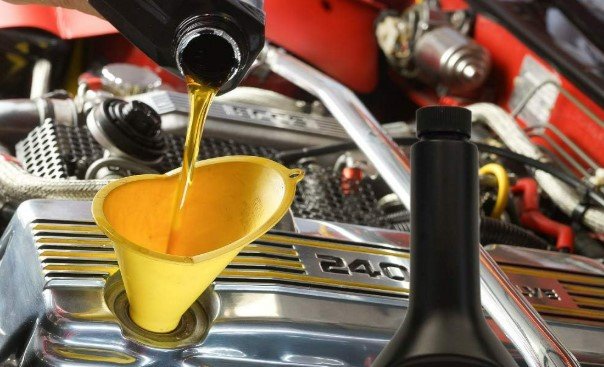Why the Right Oil Pump for Car Matters

Imagine running a marathon with no water. That’s what your engine experiences without a properly functioning oil pump. It may be small and hidden deep in the machinery, but this component is the unsung hero of your car’s engine health. In this article, we’ll explore everything you need to know about the oil pump for car—from how it works and why it’s essential, to comparing some top-rated models that real car owners swear by.
Whether you drive a 2010 Forte, a classic Ford 351 Windsor, or a modern Chevy 4.3 V6, this guide will walk you through your best options, maintenance tips, and how to know when it’s time for a replacement. So buckle up, because we’re about to make oil pumps… actually interesting.
Why Is an Oil Pump So Important?

Without the oil pump, the engine would seize up in minutes. That’s why it’s crucial to make sure it’s working well. It’s also the reason people are willing to pay $50 to $100 or more for a quality oil pump—it’s not a luxury; it’s a necessity.
How It Works (In Simple Terms)
-
Oil is drawn from the oil pan.
-
The pump pressurizes the oil and sends it through the oil filter.
-
It flows into the crankshaft, camshaft, and valve train.
-
Excess oil drains back into the pan for another cycle.
Simple, yet genius. If the pump fails, that cycle breaks, and things go south quickly.
Top Signs Your Oil Pump Might Be Failing
Before we dive into specific products, let’s talk symptoms. You don’t have to be a mechanic to know when something’s off. Here’s how to spot a dying oil pump early:
-
Low oil pressure warning light on your dashboard
-
Strange ticking or whining sounds from the engine
-
Higher engine temperatures
-
Engine performance suddenly drops
If you ignore these, you risk total engine failure—which can cost thousands to fix. Replacing a bad oil pump early? Usually under $100 and some elbow grease.
Different Types of Oil Pumps and Their Uses
Choosing the right oil pump for your car depends on what type of engine you have, your driving habits, and what performance you expect. Let’s break down the common types:
1. Standard Volume, Standard Pressure Pumps
Perfect for daily drivers. These pumps offer just the right amount of oil flow and pressure without overworking the system. A great example is the HARUMA M83, designed for Ford 351W engines (1969–1996). It delivers factory-spec performance, making it ideal for restorations or OEM replacements.
2. High Volume Oil Pumps
These are for engines that demand more lubrication—think trucks, race cars, or older engines with more wear. The HARUMA M-55HV, for instance, is made for Chevy C1500s and 5.7L V8s. It moves more oil per rotation, reducing engine wear significantly.
3. Electric Oil Extractor Pumps
These are a modern mechanic’s best friend. They help with clean oil changes and fluid transfers without getting under the car. The PLUMIA 12V 100W electric extractor is great for motorcycles, ATVs, and boats—not just cars.
4. Oil Syringes & Manual Extractors
Lightweight and handy, like the Nizirioo 500ml Hand Pump. Ideal for quick oil changes or top-offs, especially in compact engines like scooters or lawnmowers.
Pro Tip: Always choose an oil pump that matches your engine specs. Oversized or mismatched pumps can cause oil pressure issues.
Detailed Look at 4 Top Oil Pumps on the Market
Let’s get into some actual products car owners are loving right now. Each of these has standout features worth noting.
1. cycwer Engine Oil Pump 21310-2G011
Price: S$75.95
Fits: 2010–2013 Forte 2.0L, 2011–2013 Tucson 2.0L
This is a high-precision pump designed to meet OEM specs for popular Kia and Hyundai models. Built from durable materials, it ensures steady oil flow even under harsh conditions. If your vehicle is part of this lineup and you’ve noticed a drop in oil pressure, this is a solid replacement.
Why choose this?
-
OEM-compatible
-
Durable cast aluminum housing
-
Easy installation with basic tools
Availability: Limited to just 5 in stock—so move fast if you need one.
2. HARUMA Replacement M83 for Ford 351W (1969–1996)
Price: S$68.94
Rating: 4.1 (12 reviews)
A tried-and-true favorite for anyone restoring a classic Ford Windsor engine. It offers standard volume and pressure, making it a direct fit for stock applications. Installation is straightforward, and many users report a noticeable drop in engine noise after switching to this unit.
Best for:
-
Muscle car enthusiasts
-
Classic car mechanics
-
Weekend engine rebuilders
3. HARUMA H-OLP8002 for Chevy 4.3 V6
Price: S$56.78
Rating: 4.6 (14 reviews)
This model is tailored for Chevy small block V6 engines, offering reliable oil delivery in a compact form. Whether you’re driving a light truck or a Chevy SUV, this pump is a dependable upgrade.
Notable feature: Its internal gear design ensures smoother flow and quieter operation, which is ideal for drivers looking for performance without sacrificing comfort.
Stock Alert: Only 1 left!
4. Nizirioo 500ml Oil Syringe Pump
Price: S$28.51
Rating: 4.4 (28 reviews)
Simple, portable, and effective. If you’re someone who enjoys doing their own maintenance—say, quick top-ups or checking oil levels—this little gadget is a gem. Comes with 2 hoses and replacement rubber rings.
Great for:
-
DIY oil changes
-
Small engine maintenance
-
Topping off transmission fluid
Oil Pumps at a Glance
| Product | Vehicle Fitment | Type | Price | Rating |
|---|---|---|---|---|
| cycwer 21310-2G011 | Forte 2.0L / Tucson 2.0L | Mechanical OEM | S$75.95 | N/A |
| HARUMA M83 | Ford 351 Windsor (1969–1996) | Standard Volume | S$68.94 | 4.1 |
| HARUMA H-OLP8002 | Chevy 4.3L V6 | Standard Mechanical | S$56.78 | 4.6 |
| Nizirioo 500ml Hand Pump | Universal | Manual Syringe | S$28.51 | 4.4 |
| PLUMIA 12V Electric Extractor | Universal | Electric Oil Extractor | S$42.63 | 4.1 |
What to Consider When Buying an Oil Pump
-
Always match the pump to your engine specifications
-
Choose high-volume pumps for older or high-performance engines
-
Opt for manual or electric extractors for DIY oil changes
-
Don’t ignore customer reviews—real feedback matters
-
Check stock levels if you need a quick replacement
Oil Pump Maintenance: How to Keep It Running Smooth
Just like your heart needs a healthy lifestyle, your oil pump for car thrives on regular care. You don’t need to be a certified mechanic to keep it working like new. All it takes is attention, consistency, and knowing the right signals.
Start with regular oil changes. Old, dirty oil is full of metal particles and sludge that can clog up the pump. Stick to the schedule in your car’s manual—even if you drive short distances or only on weekends.
Another tip: use quality engine oil. Low-grade oils might be cheaper upfront, but they can break down faster and leave deposits that damage your pump over time. Brands like Mobil 1, Castrol, or Valvoline offer stable viscosity and protect better at high temperatures.
Also, listen to your engine. If it suddenly becomes noisy, or you hear a faint whirring or ticking, the oil pump might be struggling. Catching these symptoms early can save your engine—literally.
A full engine inspection every 10,000 to 15,000 km is worth it. Especially if your vehicle is older, drives in extreme weather, or pulls heavy loads.
Electric vs. Mechanical Oil Pumps: Which One Should You Choose?
In the modern world, we have choices. Some people still swear by manual transmissions and paper maps. Others love tech like auto parking and GPS alerts. The same goes for oil pumps—some are old-school mechanical, others are electric.
Mechanical Pumps
These are directly driven by the engine itself. They’re rugged, reliable, and have been around forever. They’re also standard in most combustion engines. If you’re replacing a factory-installed pump, you’ll most likely go with a mechanical one—like the GM Genuine Parts 12640981 suction pipe or the Engine Oil Pump M349 for Chevy.
Electric Pumps
Used mostly in hybrids, electric cars, or specialty vehicles. They run independently from the engine and can operate even when the motor is off. Handy for pre-lubricating parts before startup or cooling turbos after shutdown.
Some newer 12V models like the PLUMIA Extractor Pump even help with oil changes—great for boats, RVs, motorcycles, or those who love a clean garage.
Which is better?
| Feature | Mechanical | Electric |
|---|---|---|
| Power Source | Engine-driven | Battery or external power |
| Application | Most cars & trucks | Hybrids, boats, specialty |
| Reliability | Very high | Good with quality brands |
| Maintenance | Low | Moderate |
| DIY Friendliness | Moderate | High (for oil changes) |
Choose mechanical for engine replacements or rebuilds, electric if you’re into modern tech or frequent oil servicing at home.
Real-World Use Cases and Recommendations
Let’s make this real. Here are a few scenarios, and which oil pump for car fits best:
Daily Commuter – 2011 Hyundai Tucson 2.0L
You need reliability. The cycwer 21310-2G011 is engineered for this exact engine. If your mileage is high or your engine light is on, this OEM match ensures smooth operation again.
Restoration Project – 1975 Ford Mustang (351 Windsor)
Go with the HARUMA M83. Standard volume, standard pressure, perfect for vintage motors. It’s like finding the right heartbeat for your classic car.
Work Truck – Chevy C1500 5.7L
The HARUMA M-55HV gives you high-volume oil flow for hardworking engines. It’s like giving your truck a daily multivitamin.
DIY Enthusiast
Grab the PLUMIA 12V Extractor or Nizirioo Hand Pump. These tools make oil changes a breeze, and you’ll avoid messes under the car.
Buyer’s Guide: Choosing the Best Oil Pump for Your Needs
You’ve read specs and reviews, but what really matters when picking an oil pump for car?
1. Engine Compatibility
Always check your vehicle’s make, model, and year. Some pumps fit a narrow range—like the HARUMA M340, which is tailored for Ford SOHC 5.4L and 4.6L engines. Don’t just guess.
2. Pump Volume
Go for standard volume if your car is stock. High-volume pumps are better for:
-
Worn engines
-
Performance upgrades
-
Towing and off-road use
3. Material Quality
Look for pumps made of forged steel or cast aluminum. Avoid low-grade knockoffs.
4. Brand Reputation
Brands like HARUMA, GM Genuine Parts, and cycwer are known for precision parts and OEM reliability.
5. Ease of Installation
Some pumps come with mounting bolts, gaskets, and instructions. If you’re installing it yourself, make sure it includes everything you need.
FAQs About Oil Pump for Car
How long does a car oil pump last?
A: Most last between 100,000 to 150,000 km, depending on maintenance and oil quality. Some even go beyond that if well cared for.
Can I drive with a faulty oil pump?
A: No. It’s extremely risky. Without oil flow, your engine can seize in minutes. Always fix it ASAP.
How much does it cost to replace an oil pump?
A: Parts range from S$50 to S$100, labor can be S$200–S$600 depending on the car and location.
Can I replace the oil pump myself?
A: If you’re comfortable with removing the oil pan and have engine knowledge, yes. Otherwise, leave it to a mechanic.
Do electric oil pumps need maintenance?
A: Not much, but make sure the wires and seals stay clean and dry. Always check for leaks or low suction.
Are oil extractors better than traditional oil changes?
A: They’re cleaner and easier, especially if your vehicle’s drain plug is hard to reach. Just make sure to extract the full volume.
What oil pump should I use for performance cars?
A: Go for high-volume pumps like the HARUMA M-55HV. These give better lubrication under stress.
What happens if oil pressure is too high?
A: It can damage seals and cause leaks. Always use a pump suited to your engine’s needs.
Final Thoughts: Don’t Ignore the Pulse of Your Engine
The oil pump for car may not be flashy, but it’s critical. It’s the silent guardian of your engine’s life—circulating oil, reducing heat, and preventing wear every single second the engine runs.
Replacing a worn-out pump or upgrading to a better one isn’t just smart; it’s essential. Whether you drive a dependable commuter, a roaring V8, or a weekend motorcycle, choosing the right pump protects your ride, your investment, and your peace of mind.
So next time you check your oil, ask yourself: Is my oil pump doing its job? If not, now you know exactly what to look for.






